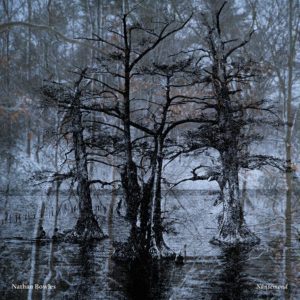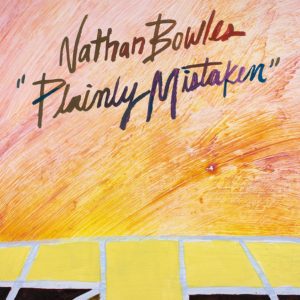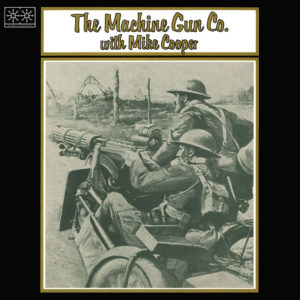Album Narrative
Widely recognized as the first openly gay country music album—and cited as such even by Nashville institutions like the Country Music Hall of Fame and CMT—the landmark self-titled 1973 LP by Lavender Country stands as nothing less than an artifact of courage, a sonic political protest document of enormous power, clarity, and grace.
At once a scathing indictment of the injustices perpetrated on the homosexual community, a proud proclamation of gay identity, and a love letter of bracing intimacy and eroticism, the album radically appropriates the signifiers of the conservative country genre, queering its heteronormative vocabulary into a deeply personal language. Songwriter, singer, and guitarist Patrick Haggerty, a fearless first-generation gay liberation activist and artist, seasons his songs with Yippie deviousness; in the manner of the Cockettes, the laughs both sharpen and sweeten the impact. To our ears the inimitable aesthetics and glimpses of cockeyed humor recall some ethereal psych-folk nexus of the Flatlanders and the Holy Modal Rounders as much as any standard country and western forebears, rendering the biting poetry in an even more otherworldly and timeless light.
-

-
Lavender Country live at the Church on York.
-

-
Lavender Country live at the Church on York.
-

The record reflects Haggerty’s experiences: his upbringing on a tenant dairy farm in rural Washington, on the Canadian border; his dismissal from the Peace Corps on the spurious grounds of his sexuality; and his righteous struggles as an outraged young gay man navigating the Pacific Northwest in the immediate aftermath of Stonewall. He designed Lavender Country as a vehicle for what he deems “The Information”: valid cultural communications intended to resonate with those unable to access similar resources. (Playing “Cryin’ These Cocksucking Tears,” one of the indisputably great country song titles ever, cost a brave Seattle DJ her FCC license.)
This deluxe reissue includes includes a 32pp chapbook with an oral history by Haggerty, never before published color photos, a download code (vinyl version only), and full lyrics to these ten moving songs of gay liberation.
Acknowledgments
Best New Reissue: 8.6. Masterful—sexy, sad, and tender all at once. Haggerty’s songs are resonant and wonderful, folding pain into jokes and vice versa and exuding heartbreak and anger and wry good humor. It’s a tremendous feat, a remarkable act of bravery and honesty as well as a statement on the universality of love and lust and belonging. Pop songs are limited vessels for social justice, but the good ones do a remarkable job of teaching empathy, a few minutes at a time, and Haggerty’s songs build a better world to live in, for forty minutes or so. There aren’t many achievements more exalted than that. Now that the resourceful and adventurous North Carolina label Paradise of Bachelors is reissuing Lavender Country, the enduring richness of Haggerty’s achievement can be appreciated again.
– Jayson Greene, Pitchfork
Extraordinary gay anthems. The lyrics on Lavender Country are funny, furious, explicit and touching: the album’s impetus may have been political, but its content is deeply personal. Gay themes aside, Lavender Country is in many ways a classic country record, with its keening harmonies, rolling piano and cracked heart.
– Graeme Thomson, The Guardian
– NPR Dinner Party Download feature
Pioneering ’73 gay country LP, musically in Holy Modal Rounders territory; odd, reedy renderings of [Haggerty’s] caustic, political themes with ramshackle arrangements. Beautifully packaged with a moving oral history.
– MOJO
For all its strides, our culture remains woefully inadequate when it comes to producing gay country songs. Thankfully, the excellent North Carolina–based indie label Paradise of Bachelors has stepped up to rectify this situation by reissuing the trailblazing (and until now scarcely available) self-titled 1973 debut by Lavender Country. For all the out contemporary artists, few dare to be as explicit about the frustrations and pleasures of being a gay man as Haggerty. If Lavender Country were only a historical curio, it would be a fascinating listen. But it’s also an often pretty and delightfully strange proto-indie Americana record that predates backwood eccentrics like Bonnie “Prince” Billy and Bill Callahan.
– Steven Hyden, Grantland
– CBC Radio feature
A compelling musical time capsule that melds humor, protest, and pride into a sonic canvas in the vein of contemporaries the Fugs or a wryer incarnation of Ray Wylie Hubbard and The Cowboy Twinkies. Plaintive fiddle lines and rambling piano fills situate the album firmly within a Nashville-bar-band idiom, while Haggerty’s nasal tenor is so distinct as to discourage comparison. Lyrically, the album is often humorous and painful at once, a feat that makes tales of exclusion and institutionalized homophobia all the more compelling. When Haggerty sings, “He won’t get no restitution,” about a gay victim of electroshock therapy, it’s enough to give you goosebumps.
– Andrew Aylward, BOMB Magazine
In a different world, would Lavender Country already be a part of country music’s storied history? Would Haggerty be an icon alongside greats like Willie and Hank? This is music that matters and stands on its own two feet. Patrick’s storyline isn’t a crutch, but the backbone of a brilliant record. Country music at its best has always been a medium that conveys deeply personal, intriguing stories, and in that sense the album is a triumph. Lavender Country encapsulates the rebellion and defiance of old country music, a music that sprang from a boundless culture that refused to give up its rural, lawless freedom, and there’s a sense of that backwoods lawlessness in Lavender Country. It’s that kind of determination—a determination toward kindness even amid the horror stories it tells—that marks this as a country record in the tradition of great country records.
– Caitlin White, MySpace
If the sound of Lavender Country sometimes recalls the style of similar post-countercultural efforts by such avant-garde folk performers as Ed Sanders and The Holy Modal Rounders, Haggerty’s lyrics provide a tour of the battered psyche of a man who simply wants to live his life free of equivocation… Much like a ’70s mainstream country singer, Haggerty laid out a social reality that may have seemed foreign to many of the era’s listeners. Moe Bandy sang about the terrors of infidelity in 1974’s “I Just Started Hatin’ Cheatin’ Songs Today,” while Haggerty explored the somewhat more life-threatening rigors of gay life in Lavender Country’s greatest track, “Waltzing Will Trilogy,” a song about mental institutions and sadistic prison guards who abuse gay inmates. It’s safe to say no Nashville country songwriter of the era would have written about “straight white honky quacks.”
– Edd Hurt, The Nashville Scene
Patrick Haggerty is a 70-year-old man who, in 1973, wrote and recorded a gay country album that is one of the most punk rock things you will ever hear. As righteous and as ribald as they come, Lavender Country is like a raw Hank Williams platter that tells queers to come out and homophobes to go fuck themselves. Forty-one years later, this unjustly arcane disc is still revolutionary.
– Barry Walters, Wondering Sound
A fascinating listen both in context and on its own. The album sounds like something Webb Pierce might have put out – Haggerty’s sharp twang isn’t dissimilar to Pierce. Lavender Country‘s most effective weapon, however, is that which had no historical precedent: its lyrical content. This is brazenly out in a way few albums from the period across any genre could be… A small but significant reminder that love is universal, that it comes in many forms in many places, and that it doesn’t have to sound like Steve Grand.
– Patrick Masterson, Dusted
Forty years on, the album holds up as a fascinating and somewhat psychedelic piece of music, full of spirit and spunk and often couched in humor that thinly veils the grit and anger underpinning the songs. Without any recognition from the establishment, it was a different strain of outlaw country right in line with that movement as it was crystallizing with Willie, Waylon, Merle, and Kristofferson.
– James Reed, The Boston Globe
So here’s the story: a Seattle man named Patrick Haggerty wrote and recorded an openly gay country album as Lavender Country in 1973. This is because he is a steelier person than you or I. He included a waltz called “Cryin’ These Cocksucking Tears” because he’s funnier than you or I. And he loaded the song, and the album, with exquisitely personal and painful lyrics that raged against the hypocrisies, large and small that defined his life. It is a document of protest, but not a strident one. For years, this album was a rumor, a piece of cocktail conversation amongst hardcore record nerds. It is reentering the cultural conversation, deservedly, now that Paradise of Bachelors are reissuing the record.
– Pitchfork
The ’70s were a groundbreaking time for country music—but few innovators were as fearless as Patrick Haggerty… The album showcases Haggerty’s wit, heart, and outspoken grace as he sings about homosexuality and liberation in a musical environment that was less than inviting. Lavender Country is simply a beautiful piece of ’70s country, mildly psychedelic and with hints of rustic folk.
– Jason Heller, A.V. Club
A brave and powerful manifesto, a country album with a punk-rock message: “I’m gay, so fuck you.”
– Dave Lake, Seattle Weekly
Radical in 1973, and would still raise eyebrows in Nashville today.
– Alastair McKay, Uncut
Inverting, subverting, and perverting conservative, conventional country with cockeyed sarcasm and deviant rebel yells, Lavender Country’s landmark LP is not only an important artifact, but also serves as a time capsule containing an oral history chronicling, through the use of music as a medium for critical cultural communication, a singular experience of socio-political protest and gay liberation.
– Kateri O’Neil, Flavorpill
Several decades after the fact, Lavender Country still works because Haggerty was a talented songwriter whose lyrics range from the randy pleasures of “Come Out Singing” and the screed against sexual gamesmanship “Crying These C**sing Tears” to the tales of institutional abuse in “Waltzing Will Trilogy” and the bitter political messages of “Back in the Closet Again.” Haggerty also built these songs around simple but sturdy melodies, and his voice (which suggests Will Geer’s hipper younger brother) had a sly insouciance that expresses humor and anger equally well.
– Mark Deming, AllMusic
Tunes like “Back in the Closet” and “Cryin’ These Cocksucking Tears” might initially appear to be novelty songs, but they’re drenched in authentically down-home fiddles and lovelorn harmonies, and the overall mood is more heartfelt than cheaply sarcastic.
– Falling James, L.A. Weekly
The album’s stunning liner notes are as moving and powerful as the music itself.
– Bunch Family
Honesty that most artists would not touch with a ten foot pole.
– Jesse Monteagudo, Gay Today
– Out Magazine feature on Lavender Country














